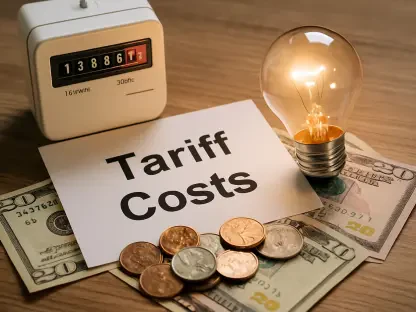The remarkable debut of Chandra Daya Investasi on Indonesia’s stock market has made substantial waves, not just within the financial sector but across the broader economic landscape. Spearheaded by the influential tycoon Prajogo Pangestu, this initial public offering (IPO) began on July 9 and resulted in the company’s shares catapulting by an awe-inspiring 500%. This development has unarguably reshaped Indonesia’s investment arena at a time characterized by economic challenges and complexities. The IPO’s success exemplifies a multitude of compelling themes, addressing both the distinctive features of the company and its more extensive implications on market dynamics and economic vitality.
Impacts on Wealth and Market Interest
Chandra Daya Investasi’s performance made a significant impact on both the company’s valuation and Pangestu’s wealth. The IPO escalated Pangestu’s net worth by a staggering US$7 billion, bringing his total fortune to US$36.2 billion. This impressive financial augmentation cements his status at the helm of Indonesia’s wealth hierarchy. Functioning under the umbrella of Pangestu’s Barito Group, Chandra Daya Investasi joins a conglomerate with diversified interests, including petrochemicals, energy, logistics, and more. The IPO’s overwhelming demand, reportedly one of the most oversubscribed in the Indonesia Stock Exchange’s history, reflects the high level of investor confidence in Pangestu’s reputation and business acumen.
Key drivers behind Chandra Daya’s IPO success include its ability to attract significant investments from both domestic and international investors. Retail and institutional buyers were drawn to the offering, signifying not only confidence in Pangestu’s leadership but also a broader belief in Indonesia’s market potential. The IPO managed to raise 2.4 trillion rupiah by issuing 12.48 billion shares, representing a substantial portion of the company’s issued capital. This made the event the largest IPO in the nation this year, with subscriptions exceeding allocations more than 560 times, predominantly from institutional investors and foreign stakeholders. The anticipation and subsequent execution of the IPO illustrate a resilient market enthusiasm for ventures linked to established industrial figures.
Emerging Trends in Investor Confidence
The overwhelming interest in Chandra Daya’s shares fits within a wider narrative of Pangestu-led enterprises securing investor trust. Previous IPOs for companies like Petrindo Jaya Kreasi and Barito Renewables yielded similar success, affirming investor expectations toward entities affiliated with the Barito Group. This pattern highlights the appeal of companies with robust business networks, especially those with a proven track record of profitability in sectors regarded as vital for Indonesia’s economic future. The streak of successful IPOs indicates a robust market disposition to support companies associated with expansive industrial networks.
Chandra Daya’s IPO contrasts with the general lag in Indonesia’s equity market, bringing renewed energy and interest. In a climate typified by global trade tensions and investment outflows, the IPO stands as a beacon of positive sentiment. Positioned within sectors such as energy and logistics, Chandra Daya benefits from governmental initiatives led by President Prabowo Subianto. His administration emphasizes energy security and infrastructure advancements, aligning with worldwide shifts towards sustainable investment. This positioning deepens investor attraction, unveiling opportunities in sectors integral to sustainable economic progress and reverberating with broader global sustainability trends.
Financial Cautions and Strategic Ambitions
Despite the excitement surrounding the IPO, analysts express caution over potential overvaluation. Chandra Daya’s price-to-earnings ratio marks an elevated 312 times, far exceeding an industry average of 14.3 times. Such ratios may suggest inflated valuations, posing risks of abrupt share devaluation amid potential market corrections. Observers from Stockbit Sekuritas caution investors, advocating for prudence to balance exhilarating growth prospects with underlying financial stability. These insights underscore the necessity for critical evaluation amidst optimistic market euphoria, welcoming a more measured understanding of equity market dynamics.
In spite of cautious tones, Chandra Daya and its parent entity, Chandra Asri Pacific, demonstrate strategic foresight. Their plans stretch beyond immediate profit to broader market integrations, with intentions to expand in energy and logistics. Specifically, investing in port and warehouse development signifies a deliberate move to leverage expanding maritime connectivity. Additionally, Chandra Asri’s major investments, like launching a new chemical plant and forging strategic partnerships in Singapore, reflect Pangestu’s ambition to solidify the conglomerate’s influence in Southeast Asia. This diverse strategic activity suggests a comprehensive vision for growth across regional markets.
New Era in the Indonesian Market
Chandra Daya Investasi’s spectacular entry into Indonesia’s stock market has sent ripples through not just the financial world but also the larger economic scene. On July 9, under the guidance of notable billionaire Prajogo Pangestu, the company launched its much-anticipated initial public offering (IPO). This strategic move resulted in a staggering 500% surge in its stock value, a feat that has undeniably transformed Indonesia’s investment environment during a period marked by economic turbulence and intricacies. This IPO not only highlights the unique strengths and strategies of Chandra Daya Investasi but also underscores significant themes related to market dynamics and economic health. The success of this IPO serves as a beacon of innovation and resilience amidst an era filled with financial uncertainties and challenges. As investors and market analysts observe this development, it becomes evident that Chandra Daya Investasi plays a pivotal role in redefining investment strategies and setting new standards in the Indonesian economy.









